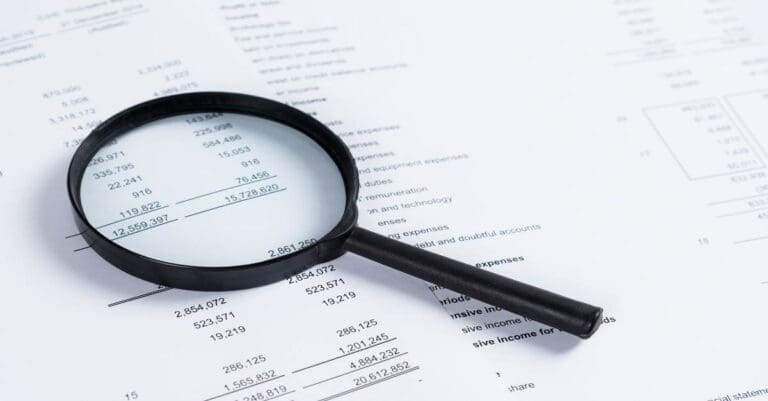Financial Statement Audit Preparation Challenges & Tips to Avoid

A financial statement audit is integral in facilitating business operations, improving your company’s credibility, detecting and stopping internal control weaknesses, and identifying opportunities for growth and expansion.
As experts in helping support audit preparation, we’ve outlined some of the most common challenges and proactive steps that can be taken to ensure a smooth audit.
What is a Financial Audit?
A financial statement audit is the process of having an independent auditor analyze your financial statements (re: balance sheets, income statements, cash flow statements and more) to attest that they are accurate, reliable and in accordance with the Generally Accepted Accounting Principles (GAAP) issued by the Financial Accounting Standards Board (FASB).
The goal of a financial statement audit is to provide an independent opinion of your financial performance and to enhance the degree of confidence with company stakeholders, such as investors, banks, suppliers, and customers.
Common Financial Audit Preparation challenges & issues
The biggest challenge is not having the appropriate resources to support the following tasks, which are critical in producing GAAP financials:
- Reliable and accurate data, reconciliations, and documentation to support financial information being posted for the year being evaluated for audit.
- Managing the process to ensure a successful audit.
- Understanding and applying any new and complex accounting guidelines.
Tips & Steps to Successfully Prepare for a Financial Audit
- Get your accounting records in order.
- Engage a professional company who understands the process.
- Be aware of accounting complexities.
- Ensure that appropriate time is allocated to see the audit preparation process through.
- Determine ownership of the opportunities identified during audit preparation.
- Understand the desired outcome of audit preparation.
1. Get your accounting records in order.
Not all companies have a full-fledged accounting and/or finance department.
That means it’s necessary to compile historical financial information and ensure that the underlying data and reconciliations are accurate and relevant.
2. Engage a professional company who understands the process.
The financial statement auditing process is wrought with complexity and requires careful preparation to ensure success.
GAAP accounting rules can be highly nuanced, requiring technical knowledge and judgement. The rules are also continually being updated, so audit preparation and reporting experience is essential to ensure the rules are applied as needed to the company financial records.
3. Be aware of accounting complexities.
You need appropriate and experienced resources to ensure that complex accounting topics like lease accounting (ASC 842) and revenue recognition (ASC 606) are applied correctly.
These resources can anticipate and apply any current complex technical topics and ensure that they are adopted correctly and appropriately reflected in your financials.
4. Ensure that appropriate time is allocated to see the audit preparation process through.
It’s imperative to have the appropriate staff resources dedicated to audit preparation.
Since an audit takes a significant amount of time and effort, not having the right resources engaged also impacts managing, compiling, and returning audit requests within the deadlines provided by the auditor.
5. Determine ownership of the opportunities identified during audit preparation.
Typically, audit preparation identifies opportunities for improvement and the company should allocate resources to carry them out to ensure processes are scalable to support future company growth.
6. Understand the desired outcomes of audit preparation.
The most desirable outcomes of audit preparation are as follows:
- Understanding of what the actual audit will entail.
- Ensuring all processes, policies and reconciliations are available and that all current accounting guidance has been applied accordingly to your financial statements.
- Being prepared will set the right tone when audit begins with your external auditor, which will support building a good working relationship.
Final Thoughts on Financial Audit Preparation
Whether it’s your first audit or simply your next, proper preparation is essential. Companies should overemphasize the importance of effective planning and preparation.
Without doing so, you’ll run into timeline delays, inefficiencies, unexpected costs, and potential internal control deficiencies, which will increase the potential for a negative audit opinion thereby eroding stakeholder confidence and potential growth opportunities for your company.
The best option is to hire a professional company to consult and partner with you to provide the specific expertise you need, to get ahead of issues and drive a successful audit.
Need Financial Statement Audit Preparation Support?
Bridgepoint Consulting‘s dedicated team of financial and accounting experts provide a variety of advice and support, including audit preparation, financial statement preparation work in adherence, revised accounting standards, financial reporting processes and public company readiness.
Contact us today or learn more about our financial statement audit preparation services at the link below.




